Part 28: Generating Content with ChatGPT
Part 28: Generating Content with ChatGPT
Here's something interesting that a friend of mine did with podcast scrapes. You know, they'll scrape all the podcast episodes and transcripts, and then he built a search engine for podcasts that differentiates itself by showing you the most listened-to episode for every podcast.
For example, here's the most listened-to episode for Jay Shetty's podcast, and like Altel, he would have thousands of these pages ranking on Google.
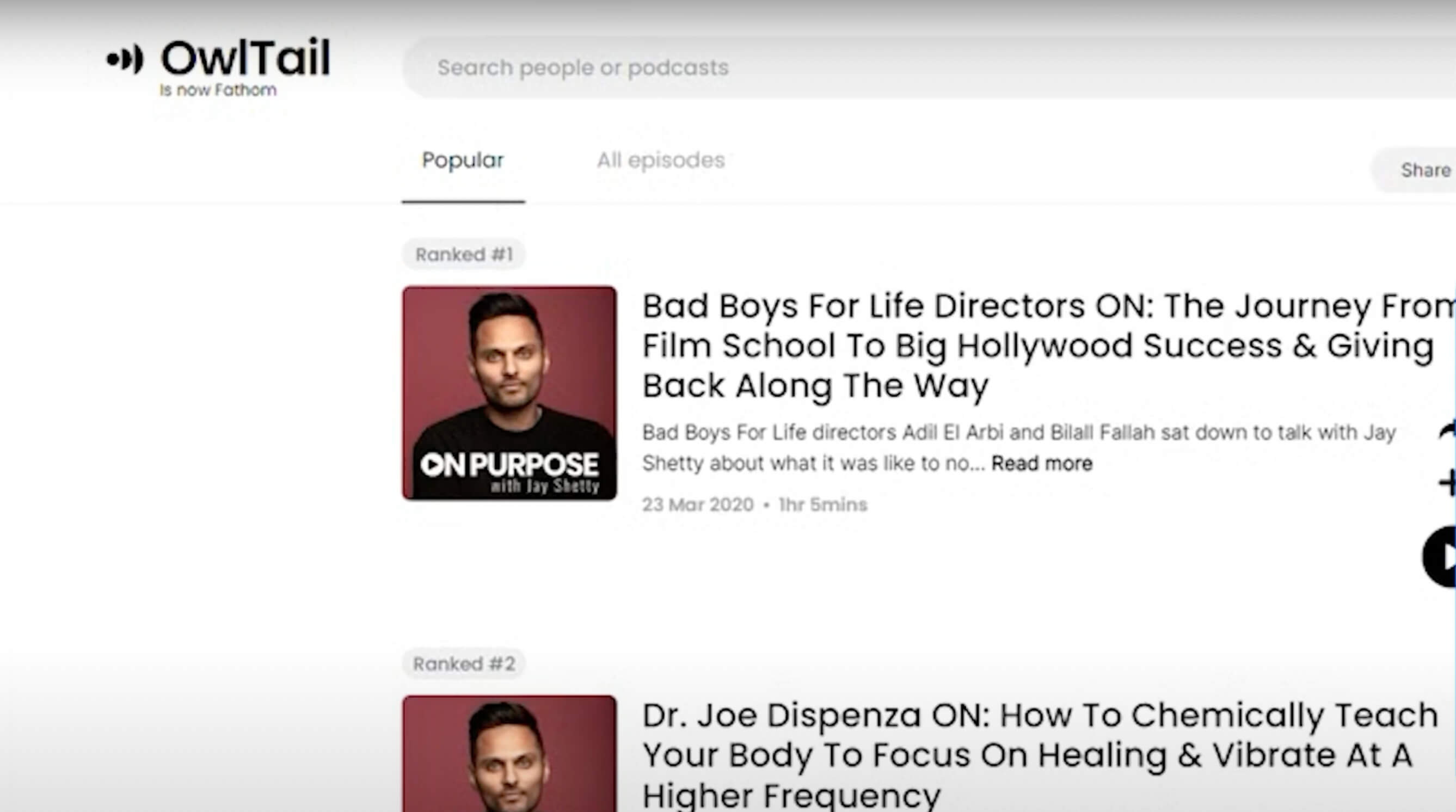
Another interesting source of content is the transcripts on YouTube that you can scrape using some Chrome extension tools. It's in the HTML document, so you can just look at it.
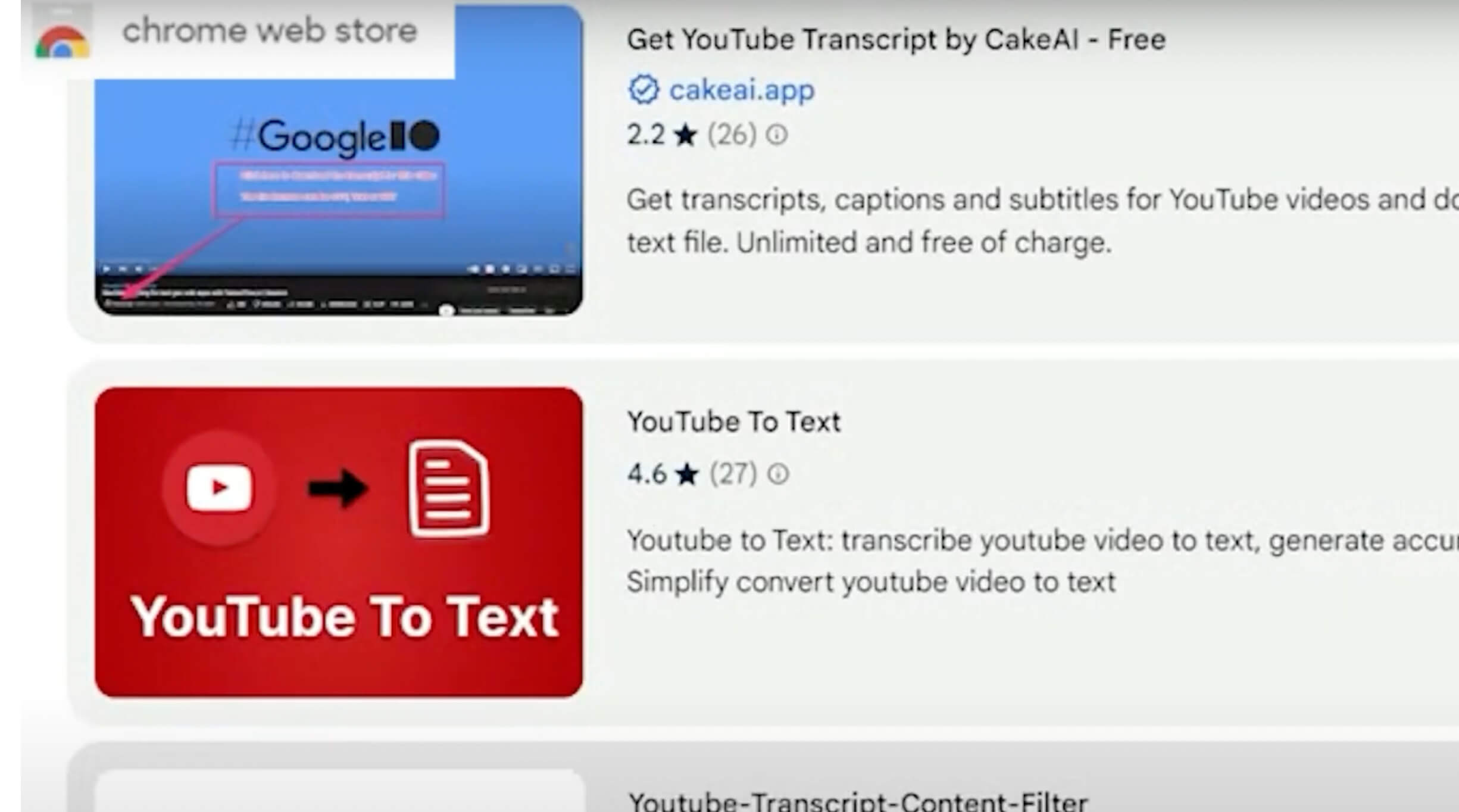
Why this is interesting is because you can transform this data and make it unique or turn it into an article.
You can take the YouTube transcript from a video, put it into ChatGPT, and ask it to write an article on the same topic based on the points that were brought up in the video. That's great free content that you can generate on a large scale in a programmatic way.
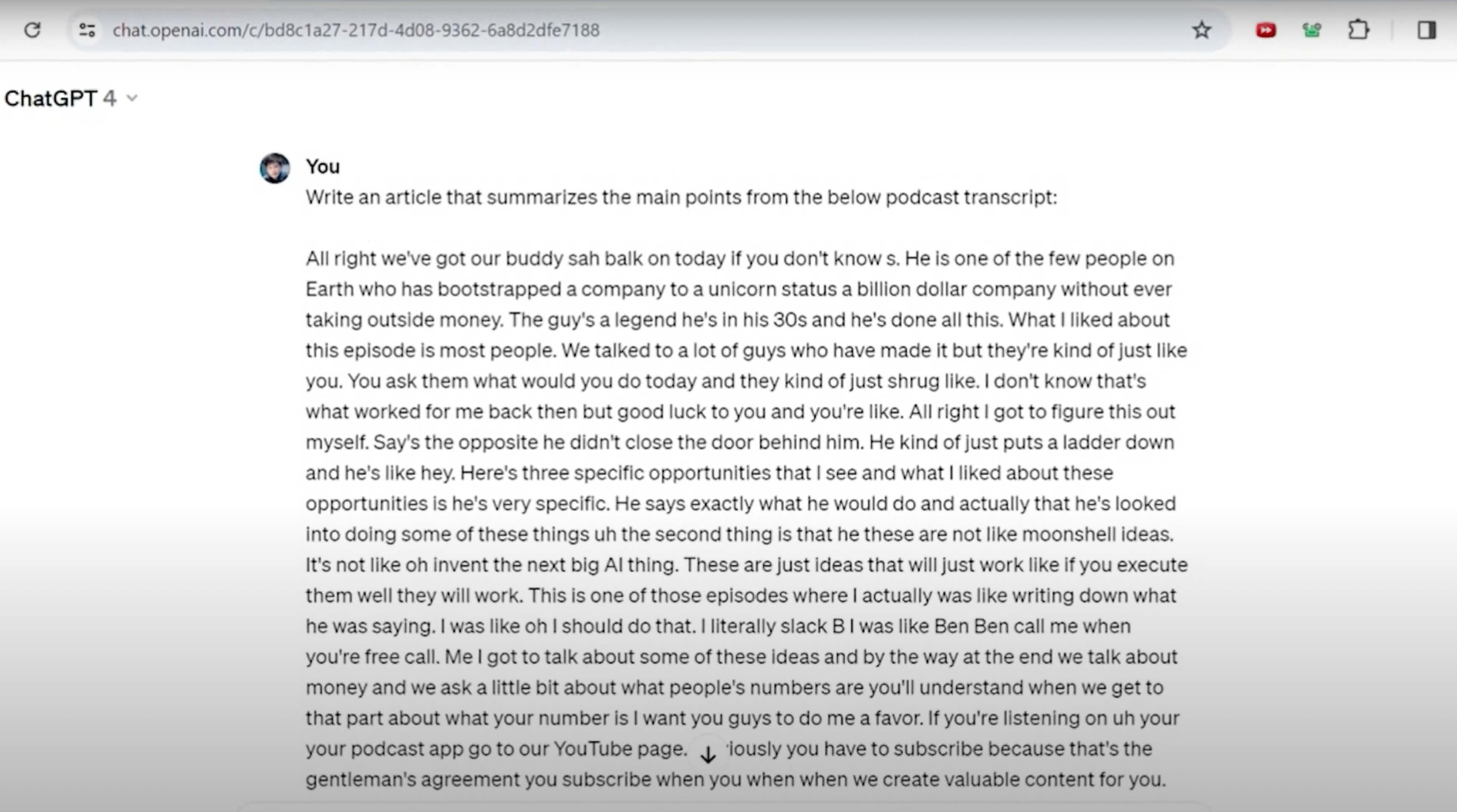
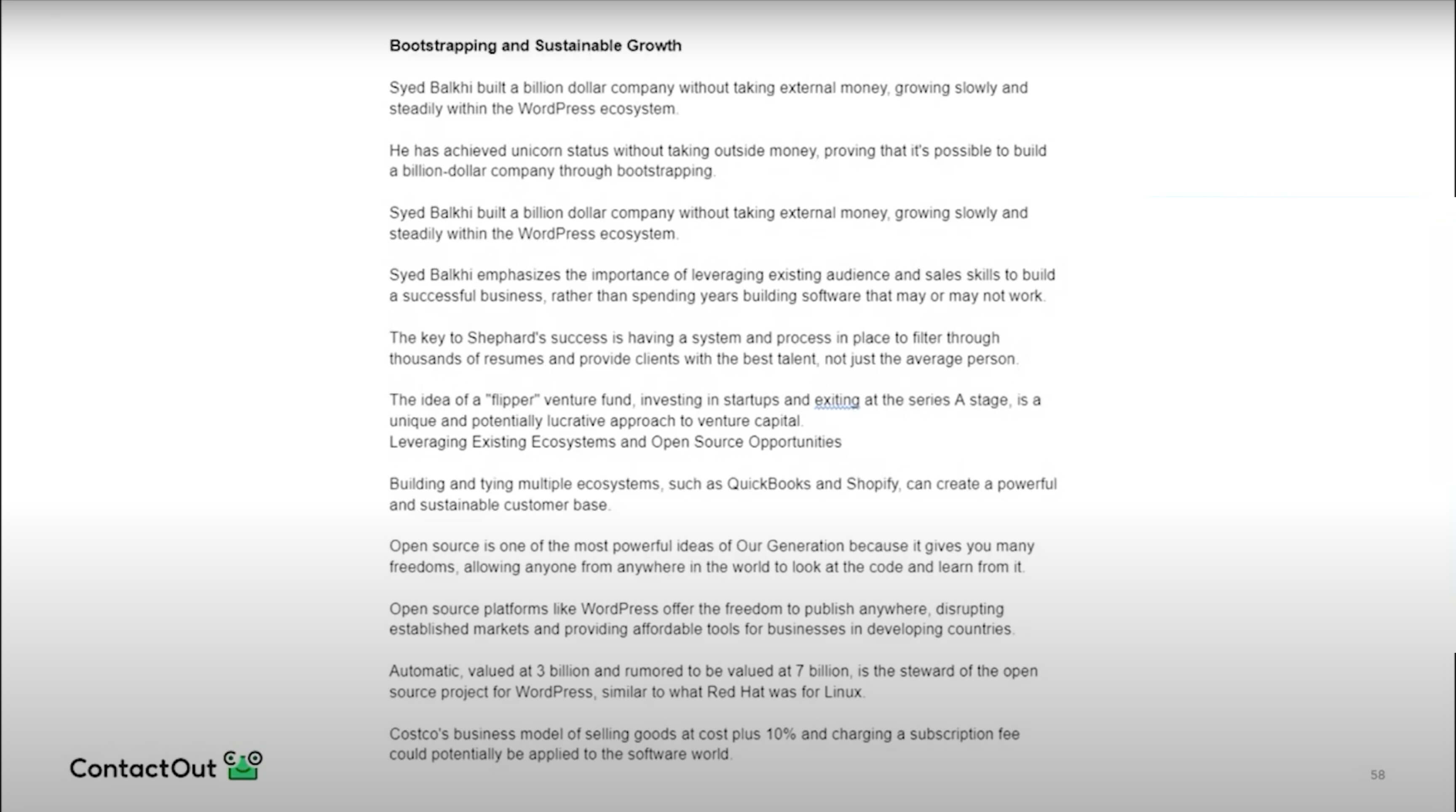
The content needs to be unique; otherwise, Google won't rank our content if it's just a duplicate. And if our content doesn't provide any value, then even if it does rank, users will bounce and go back to Google, and then Google would drop our rankings.
So there's no way to get around actually generating value for the user. As I mentioned, what we did was we took the scrape of the LinkedIn profile, put it over to ChatGPT, and we're like, "Write an article for Bill Gates based on his LinkedIn profile and highlight the most interesting points." Here's some of the content that we were able to generate based on that."
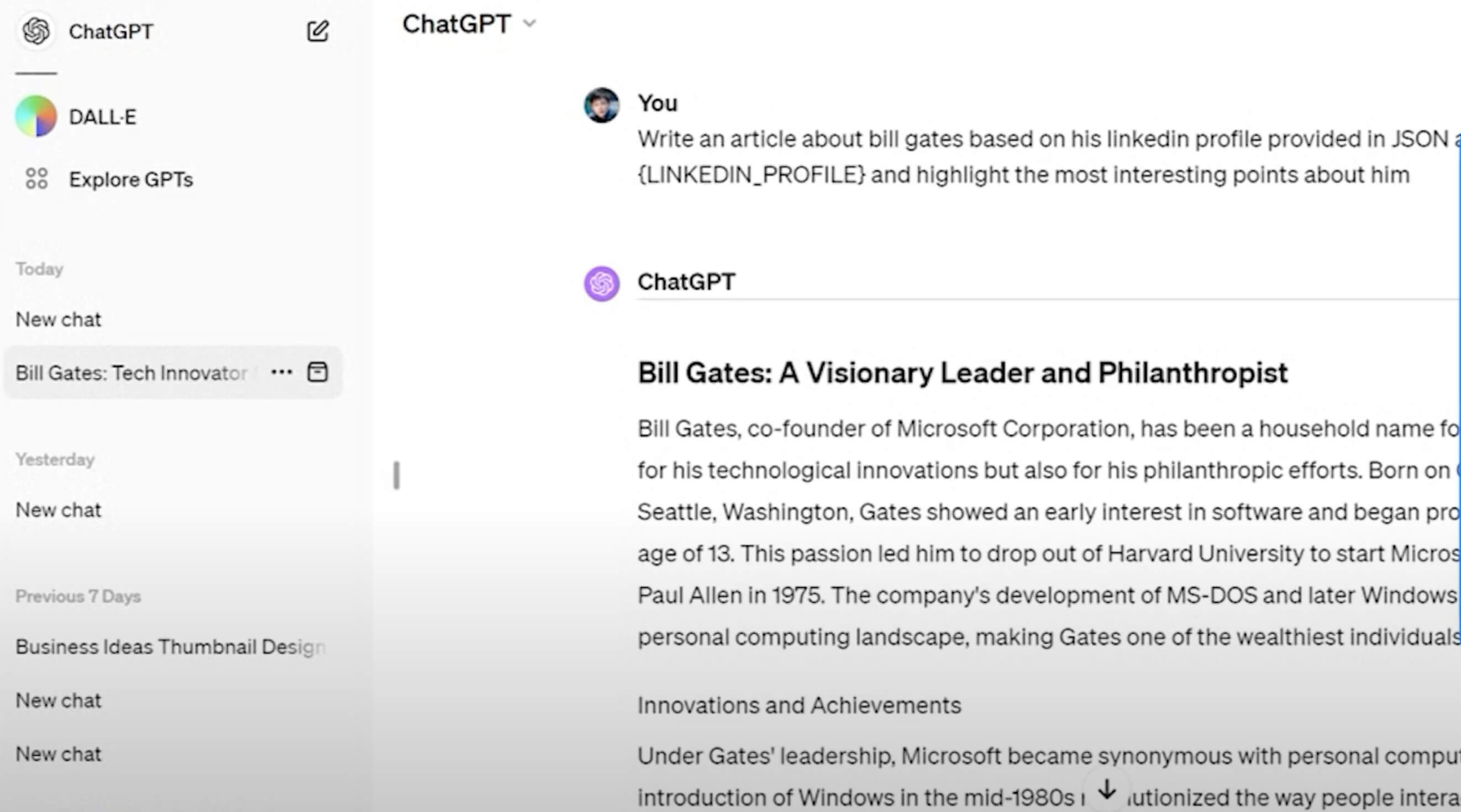
Here's something interesting that a friend of mine did with podcast scrapes. You know, they'll scrape all the podcast episodes and transcripts, and then he built a search engine for podcasts that differentiates itself by showing you the most listened-to episode for every podcast.
For example, here's the most listened-to episode for Jay Shetty's podcast, and like Altel, he would have thousands of these pages ranking on Google.

Another interesting source of content is the transcripts on YouTube that you can scrape using some Chrome extension tools. It's in the HTML document, so you can just look at it.

Why this is interesting is because you can transform this data and make it unique or turn it into an article.
You can take the YouTube transcript from a video, put it into ChatGPT, and ask it to write an article on the same topic based on the points that were brought up in the video. That's great free content that you can generate on a large scale in a programmatic way.


The content needs to be unique; otherwise, Google won't rank our content if it's just a duplicate. And if our content doesn't provide any value, then even if it does rank, users will bounce and go back to Google, and then Google would drop our rankings.
So there's no way to get around actually generating value for the user. As I mentioned, what we did was we took the scrape of the LinkedIn profile, put it over to ChatGPT, and we're like, "Write an article for Bill Gates based on his LinkedIn profile and highlight the most interesting points." Here's some of the content that we were able to generate based on that."

